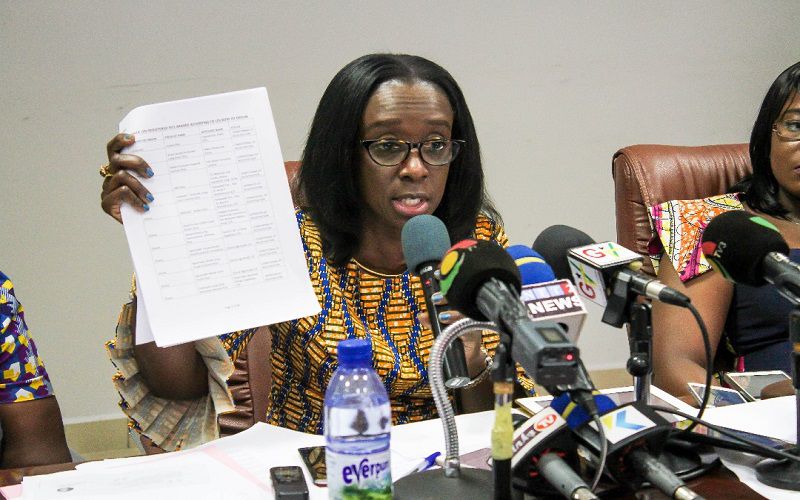The Food and Drugs Authority (FDA) has recently addressed the allegations surrounding the re-bagging and supply of supposedly ‘expired’ Moshosho rice to Senior High Schools. The FDA clarified its stance by stating that they had granted an extension of the ‘best before’ date of the rice after thorough assessments and compliance with internationally accepted storage standards.
This clarification comes in response to accusations made by North Tongu MP, Samuel Okudzeto Ablakwa, who claimed that Lamens Investments Africa Limited and the National Food Buffer Stock Company (NAFCO) had repackaged 22,000 expired and contaminated rice imported from India. Ablakwa alleged that the rice was falsely labelled as made in Ghana, with its expiry date of December 2023 removed.
During a news conference on Tuesday, 26th November, FDA Chief Executive Officer Dr Delese Mimi Darko shed light on the matter. She disclosed that Lamens Investments had initially applied for a shelf-life extension on 4th November 2023. However, the request was denied on 15th December 2023 as it lacked endorsement from the product’s manufacturer.
Dr. Darko explained, “The request was not granted to Lamens, and this was due to the fact that the request came from the importer, Lamens, rather than the manufacturer. The attached certificates indicated an expiry date of December 2025. Based on this, the FDA did not grant the extension as requested.”
Subsequently, Lamens Investments was fined 100,000 cedis for breaching the Public Health Act after repackaging activities were discovered at a NAFCO warehouse by the FDA’s Kumasi office on 20th December 2023.
Further investigations revealed that the rice products had a ‘best before’ end date of 2023, contrary to Lamens’ earlier claims. The analytical report from CSIR supported this finding.
On 21st December 2023, the rice’s manufacturer, Satyam Balaji Rice Industry Pvt. Ltd., requested a one-year extension of the ‘best before’ date to December 2024. The manufacturer affirmed that the rice, if stored properly in dry conditions and regularly fumigated, could remain safe for consumption for up to three years.
Based on rigorous testing, the FDA provisionally extended the ‘best before’ date to 30th April 2024.
Dr. Darko emphasized, “Foods may lose their flavour or texture but remain safe if stored correctly. The Authority, like other global regulators, may allow regulatory extensions of ‘best before’ dates following rigorous testing and compliance with storage requirements, in line with international best practices.”
The FDA reiterated its dedication to public safety and welcomed the possibility of forensic audits by local or international organizations to ensure transparency in the process.






